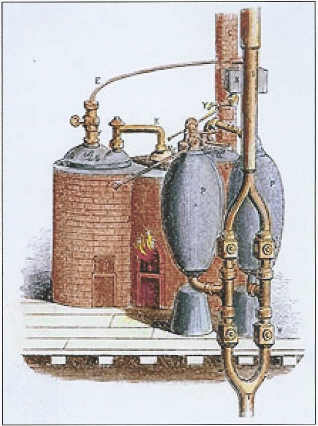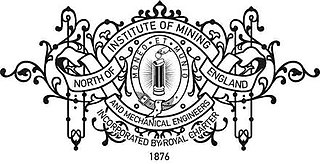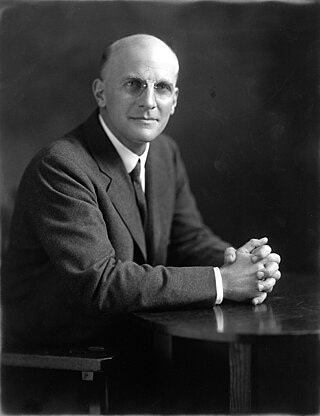
The Royal Society for the Encouragement of Arts, Manufactures and Commerce, commonly known as the Royal Society of Arts (RSA), is a London-based organisation committed to finding practical solutions to social challenges.

John Smeaton was a British civil engineer responsible for the design of bridges, canals, harbours and lighthouses. He was also a capable mechanical engineer and an eminent physicist. Smeaton was the first self-proclaimed "civil engineer", and is often regarded as the "father of civil engineering". He pioneered the use of hydraulic lime in concrete, using pebbles and powdered brick as aggregate. Smeaton was associated with the Lunar Society.

The Watt steam engine design became synonymous with steam engines, and it was many years before significantly new designs began to replace the basic Watt design.

The Royal Asiatic Society of Great Britain and Ireland, commonly known as the Royal Asiatic Society, was established, according to its royal charter of 11 August 1824, to further "the investigation of subjects connected with and for the encouragement of science, literature and the arts in relation to Asia." From its incorporation the society has been a forum, through lectures, its journal, and other publications, for scholarship relating to Asian culture and society of the highest level. It is the United Kingdom's senior learned society in the field of Asian studies. Fellows of the society are elected regularly and include highly accomplished and notable scholars of Asian studies; they use the post-nominal letters FRAS.

The Newcomen Society of the United States was a non-profit educational foundation for "the study and recognition of achievement in American business and the society it serves", active between 1923 and 2007. It was responsible for more than 1,600 individual histories of organizations, from corporations to colleges, which were distributed to libraries and its membership.

The Philological Society, or London Philological Society, is the oldest learned society in Great Britain dedicated to the study of language as well as a registered charity. The current Society was established in 1842 to "investigate and promote the study and knowledge of the structure, the affinities, and the history of languages". The society publishes a journal, the Transactions of the Philological Society, issued three times a year as well as a monographic series.

Loughnan St Lawrence Pendred was a British mechanical engineer and editor of The Engineer, a weekly newspaper for engineers, from 1905 to 1946. He was president of the Newcomen Society and of the Institution of Mechanical Engineers (1930).

Hugh Pembroke Vowles was a British engineer, socialist and author.

The Institution of Chemical Engineers (IChemE) is a global professional engineering institution with 30,000 members in 114 countries. It was founded in 1922 and awarded a Royal Charter in 1957.

The first recorded rudimentary steam engine was the aeolipile mentioned by Vitruvius between 30 and 15 BC and, described by Heron of Alexandria in 1st-century Roman Egypt. Several steam-powered devices were later experimented with or proposed, such as Taqi al-Din's steam jack, a steam turbine in 16th-century Ottoman Egypt, and Thomas Savery's steam pump in 17th-century England. In 1712, Thomas Newcomen's atmospheric engine became the first commercially successful engine using the principle of the piston and cylinder, which was the fundamental type of steam engine used until the early 20th century. The steam engine was used to pump water out of coal mines.
The League of Nations Union (LNU) was an organization formed in October 1918 in Great Britain to promote international justice, collective security and a permanent peace between nations based upon the ideals of the League of Nations. The League of Nations was established by the Great Powers as part of the Paris Peace Treaties, the international settlement that followed the First World War. The creation of a general association of nations was the final one of President Woodrow Wilson's Fourteen Points. The LNU became the largest and most influential organisation in the British peace movement. By the mid-1920s, it had over a quarter of a million registered subscribers and its membership eventually peaked at around 407,775 in 1931. By the 1940s, after the disappointments of the international crises of the 1930s and the descent into World War II, membership fell to about 100,000.
The Society for Underwater Technology (SUT) is an international learned society for marine science and technology with headquarters in London, England that was founded in 1966. There are branches in Aberdeen (Scotland), Houston (USA), Rio de Janeiro (Brazil), Newcastle (England), Perth (Australia), London (England), Melbourne (Australia), Kuala Lumpur (Malaysia), Singapore, Norway (Bergen), China (Beijing) West Africa (Nigeria), the Middle East (UAE) and new branches in early stages of development in St John's Newfoundland & the Eastern Mediterranean to be based in Cyprus. Membership is open to individuals, companies, and institutions with a genuine interest in the broad field of underwater technology. SUT is registered as a charity in the UK, other branches are constituted as charities or 'not-for-profits' as per local legislation.

The North of England Institute of Mining and Mechanical Engineers (NEIMME), commonly known as The Mining Institute, is a British Royal Chartered learned society and membership organisation dedicated to advancing science and technology in the North and promoting the research and preservation of knowledge relating to mining and mechanical engineering. The membership of the Institute is elected on the basis of their academic and professional achievements with Members and Fellows entitled to the postnominal MNEIMME and FNEIMME. The Institutes’ membership is predominantly from local industry and from academics at Durham and Newcastle Universities, though members are also located further afield across the UK.

The Institute of Industrial and Systems Engineers (IISE), formerly the Institute of Industrial Engineers, is a professional society dedicated solely to the support of the industrial engineering profession and individuals involved with improving quality and productivity.

Henry Sturgis Dennison was an American progressive business man, president and owner of Dennison Manufacturing Co. Paper Box Factory, economic analyst, and organizational theorist. He was president of the Taylor Society from 1919 to 1921, and recipient of the Henry Laurence Gantt Medal in 1932.
Frederick Steele Blackall Jr. was an American engineer, and president and chairman of board Taft-Peirce Manufacturing Company, known as 72nd President of the American Society of Mechanical Engineers in 1953–54.
Joseph Warren Barker was an American electrical and mechanical engineer, Dean of the Faculty of Engineering at Columbia University, and 75th president of the American Society of Mechanical Engineers in the year 1956-57.
Arthur Allan Gomme (1882-1955) was a British librarian, historian of technology and folklorist.

Henry Winram Dickinson was a British engineering historian and biographer who spent much of his career at the Science Museum (1895–1930), where he rose to be senior keeper of the mechanical engineering department. His biographies include Robert Fulton (1913), John Wilkinson (1914), James Watt (1936) and Matthew Boulton (1937), and he also published a history of the steam engine (1939). He was a founding member of the Newcomen Society, of which he was president (1932–34), and served as editor of their Transactions (1920–50); he is commemorated in the society's Dickinson memorial lecture.














